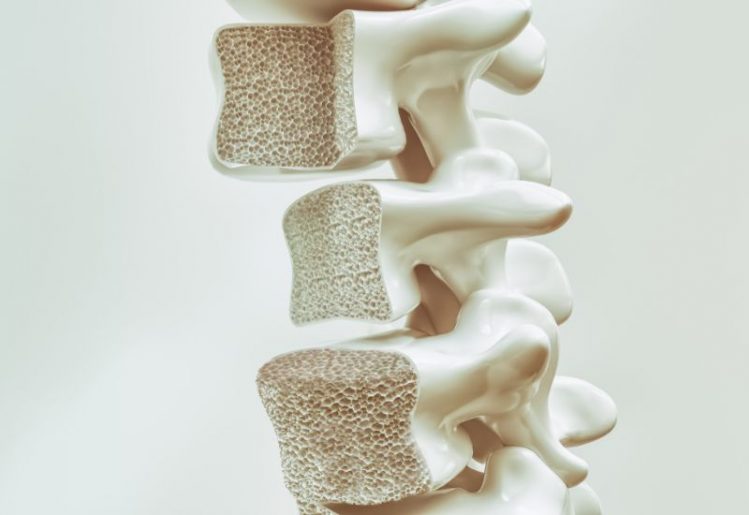Vitamin D Benefits Include Help for Depression and Inflammation
This vitamin powerhouse is well known for its vast array of health benefits for both the body and mind. In addition to the previously recognized advantages to overall physical health, scientists are now discovering new ways that this antioxidant can fight back against inflammation and depression. Here is what you need to know about vitamin D, its many benefits and how you can boost your intake.
Diving Into Vitamin D
 Vitamin D is an essential nutrient that the body harnesses for building and supporting healthy bones. Because the body can only absorb bone-building calcium with vitamin D present, it is easy to see why you need plenty of this nutrient. For example, studies have shown that the right amount of vitamin D and calcium in your diet can slow down the process of bone mineral loss. This can stave off the onset of osteoporosis while also reducing the incidence of bone fractures.
Vitamin D is an essential nutrient that the body harnesses for building and supporting healthy bones. Because the body can only absorb bone-building calcium with vitamin D present, it is easy to see why you need plenty of this nutrient. For example, studies have shown that the right amount of vitamin D and calcium in your diet can slow down the process of bone mineral loss. This can stave off the onset of osteoporosis while also reducing the incidence of bone fractures.
Vitamin D also works to encourage good immune system health, muscle function and various cellular actions. A lack of vitamin D has been associated with wounds that take longer to heal because of the role that the nutrient offers in helping to keep inflammation under control. Long-term use of the vitamin through supplementation can also lower the risk of multiple sclerosis.
While this vitamin is not found naturally in many of the most common foods, many products have been fortified with vitamin D for an extra nutritional boost. The body also makes vitamin D on its own when it is exposed to direct sunlight.
Some of the most common symptoms of vitamin D deficiency include general fatigue, pain in the bones and back, a frequent occurrence of illness, hair loss, muscle aches and weight gain. New research is also demonstrating that you may be at a higher risk of developing anxiety or depression if you are not getting enough vitamin D.
New Vitamin D Benefits Revealed
Only recently have researchers have unlocked the power of vitamin D for mental health. A study recently published in Critical Reviews in Food Science and Nutrition details how researchers discovered that vitamin D supplementation of at least 2,000 individual units (IUs) per day could potentially lower the incidence of depressive symptoms. The results were even more promising in subjects taking at least 4,000 IUs per day.
Another recent study shines light on how the vitamin may play an important role in modulating how the body responds to inflammation. For instance, some research has correlated vitamin D concentrations in the blood with inflammatory biomarkers, suggesting that adequate amounts of the nutrient could positively influence how the body responds to inflammatory events. This knowledge could help medical professionals potentially identify and diagnose those individuals most at risk of developing inflammatory illnesses.
How to Ensure Adequate Vitamin D Intake
Here are the three top ways to ensure adequate vitamin D intake.
Eat Plenty of Vitamin D-Rich Foods
Eating foods rich in vitamin D is easier said than done. Because the vitamin is not found naturally in foods that most people enjoy in abundance, you may need to be more intentional about consuming this nutrient. Good sources of this vitamin include fatty fish, mushrooms, egg yolks, beef liver and yogurt. There is also the option of being purposeful about eating foods fortified with vitamin D.
Recognizing that this nutrient is not found naturally in many foods, a growing number of products now offer it as an extra fortification. Some of the most common vitamin D fortified foods are cereals, bread, orange juice and milk. Remember that it is best to pair vitamin D consumption with calcium for maximum nutritional results.
Soak Up the Sun
 Natural sunlight is one of the best ways to meet your daily recommendation for vitamin D. This is because human skin is able to make vitamin D when exposed to sunlight.
Natural sunlight is one of the best ways to meet your daily recommendation for vitamin D. This is because human skin is able to make vitamin D when exposed to sunlight.
People who do not spend enough time outdoors may need to consider vitamin D supplementation. This is particularly important during the dark winter months when vitamin D levels tend to plummet across a large segment of the population.
Boost Your Supplement Game
For those who are worried that they are not taking in enough vitamin D through diet and sun exposure alone to receive all of the vitamin D benefits, a targeted supplement may be your best line of defense. Be sure to purchase a quality supplement from a reputable manufacturer. Most medical professionals lean toward vitamin D3 being more beneficial than its D2 counterpart.
Unlike some vitamins that most people get in copious amounts, it is not uncommon to have a vitamin D deficiency. However, because the symptoms can be so subtle, it may be difficult to ascertain if you are getting enough of this nutrient. Be sure to consult the advice of your healthcare provider if you believe that you may have a vitamin D deficiency. The problem is typically easily diagnosed with a simple blood test.




